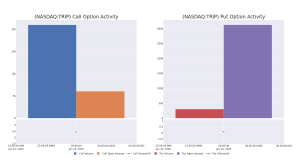Global Crossing Airlines, a startup charter airline still trying to establish itself in the U.S. market, joined forces with a private equity group in Asia to establish an airline in Australia that intends to provide dedicated cargo and passenger transportation.
The joint venture entity, which has yet to be named, will apply for an Australian air operators certificate to offer both charter and contracted flying for other airlines or large businesses within Australia and to key Asian markets. It intends to use standard-gauge Airbus A321 passenger aircraft and converted freighters, as Miami-based Global Crossing Airlines does in the U.S.
Executives are targeting late 2025 for the start of operations, pending regulatory approval, and a fleet of 10 aircraft by 2030. The initial fleet will consist of two leased aircraft, Ryan Goepel, president and CFO of Global Crossing, told FreightWaves.
ATB Investment & Partners, a fund established in Vietnam in March 2023, is backing the Australian venture. The partners said the new airline is designed to capitalize on rapid air transportation growth in Asia and Oceania, where the charter flight market is estimated to reach $6.8 billion per year, according to a market research report they cited. A major opportunity is flying for regional carriers that require extra capacity during peak travel season.
“The APAC market has embraced the capabilities of the Airbus A321 passenger-to-freighter platform and many of the global operators of this aircraft type are concentrated there,” said Goepel, in an email response about the business case for cargo. “We see this as a strong opportunity to provide supplemental airlift to existing A321 freighter operators in the region, as well as cultivating a strong ad-hoc and scheduled charter business.”
The narrowbody A321 freighter, which provides up to 25 tons of capacity, “is well suited to APAC cargo flying needs, which makes the client pool vast,” added Goepel.
Airlines in Asia that operate A321 freighters include Japan Airlines, Sichuan Airlines, Qantas and Teleport (part of AirAsia Group).
The A321 competes against the Boeing 737-800 converted freighter in the small freighter category. Although it can accommodate small containers on the lower deck and the 737-800 can only accept loose shipments below deck, it’s not clear how many airlines are using that option. Repair shops that specialize in modifying the A321 passenger variant for main-deck cargo transport tout the aircraft as a natural replacement for the Boeing 757, but so far there have been few – if any – cases of airlines swapping older 757s for the A321.


